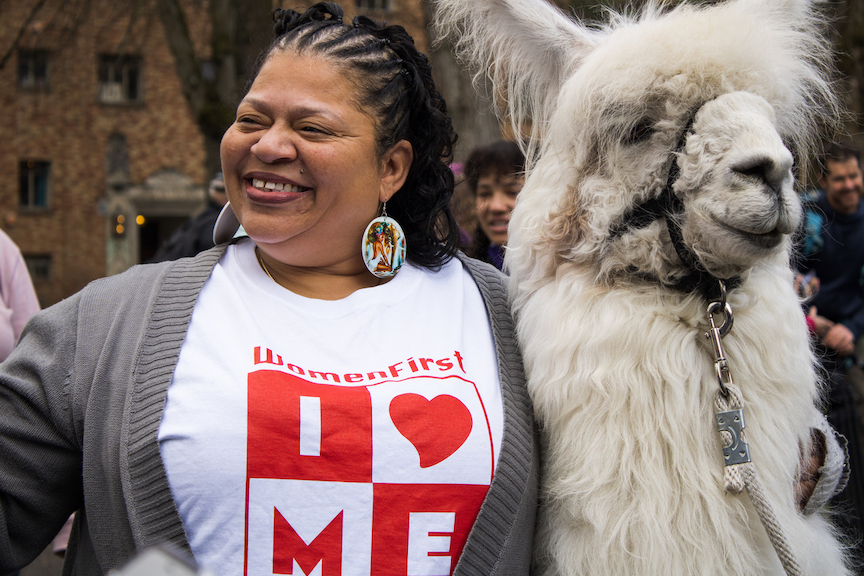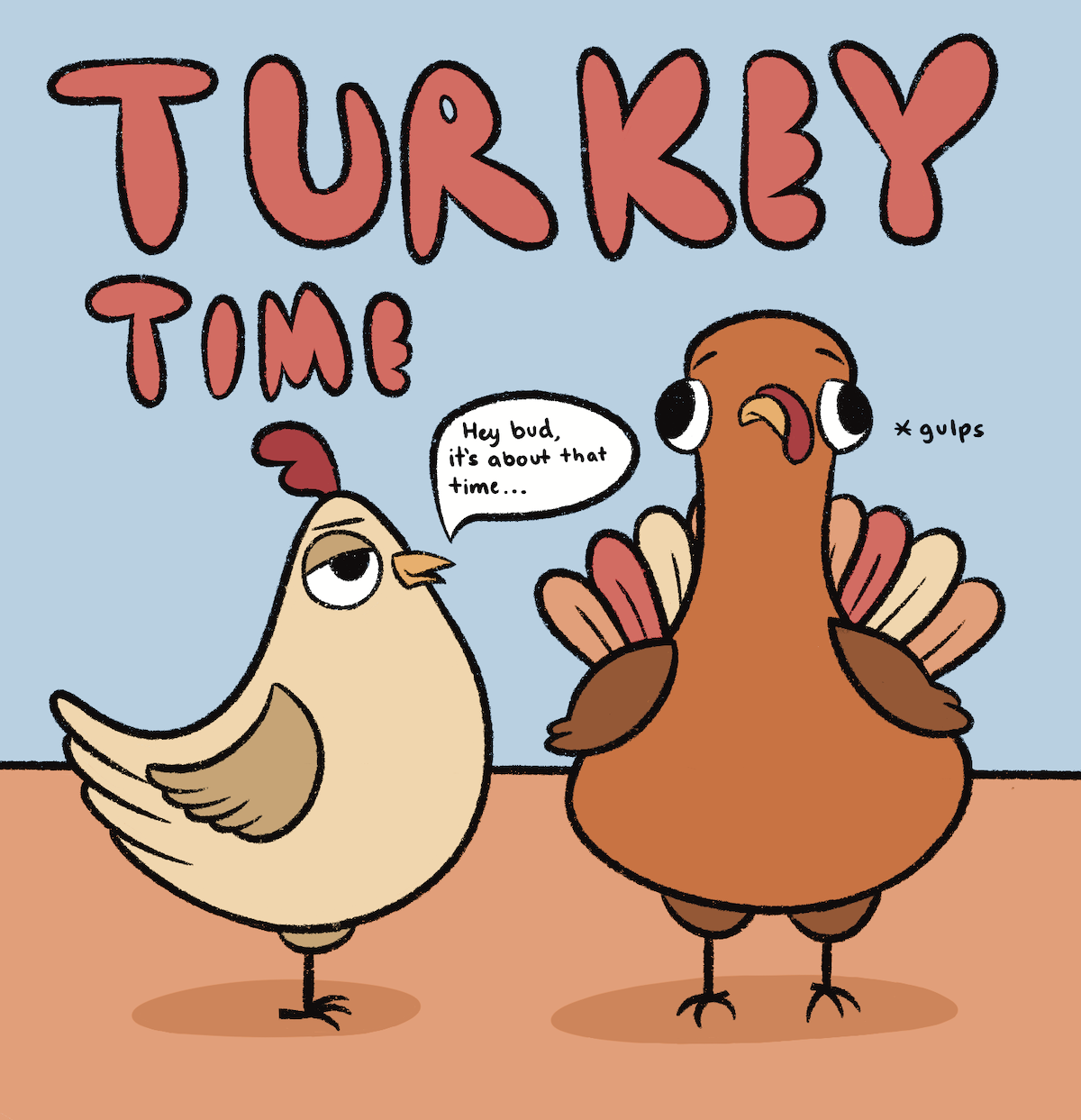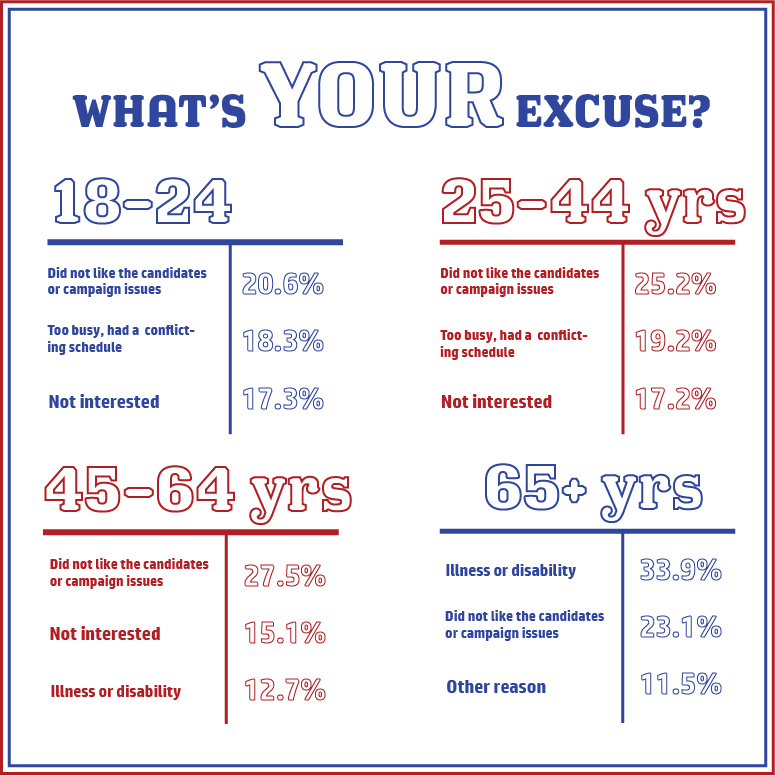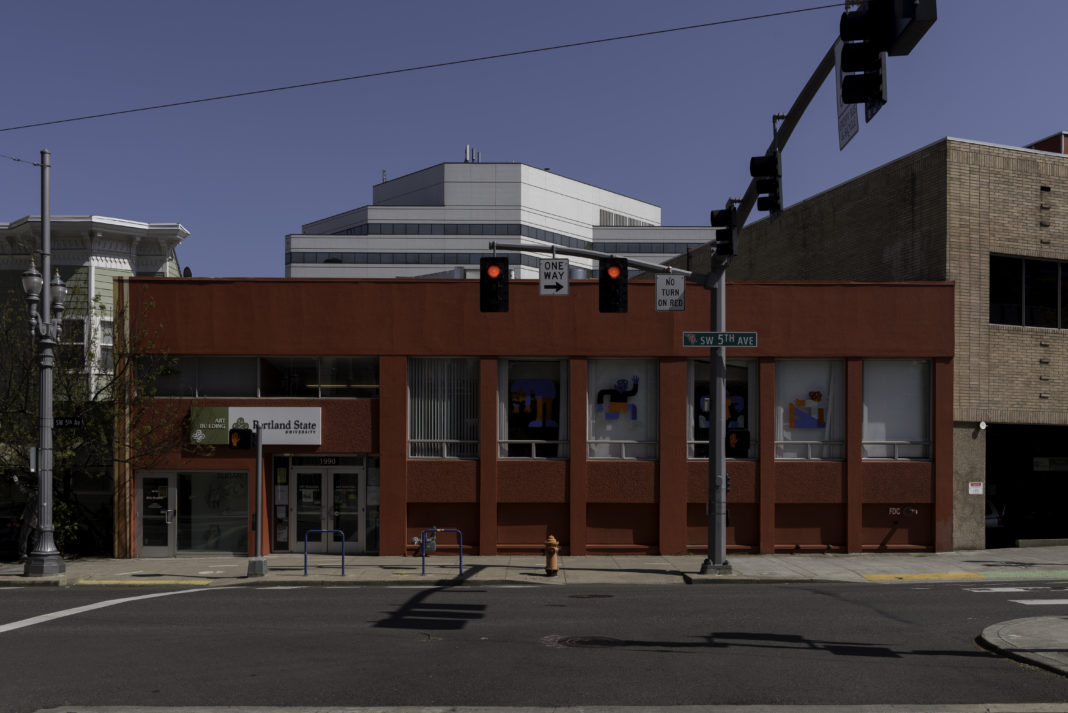Portland Womxn’s March arrives in PSU’s Park Blocks, rallying for women’s rights another year.

Womxn’s March 2020
With March comes Women’s History Month—and with that comes Portland’s Womxn’s March to the Park Blocks.
The event, which took place on March 1, started with a rally in the heart of Portland State’s campus, featuring a handful of speakers and hundreds of attendees. Once the speeches had wrapped, the event took to the streets, from Montgomery to Salmon St, until returning just outside the Smith Memorial Student Union.
The theme for 2020: “Remember and Rise.”
“[We’ve] got to remember whose shoulders we’re standing on, whose land it is we’re standing on,” said Della Rae, the director of the Womxn’s March, “And we need to think about what it means to rise [and] come together. And the only way out of this is if we do it together, and that’s all part of the rising.”
Portland’s event is as unique as the city it marches in. It started as part of the national Women’s March movement, responding to the inauguration of President Donald Trump. The Womxn’s March has since set itself apart, making multiple changes for a more inclusive event. Moving the march to March allows it to coincide with Women’s History Month.
The name itself, in particular, was changed to include more than cisgender women.
“Understanding gender fluidity is the way forward, and the x is the way to make sure that that is represented. It’s a piece to bring people together,” Rae said.
The Womxn’s March has also distanced themselves from the “pink pussy” hats that the national movement became known for, for the same reason as the name. At the previous march in 2019, attendees were asked to remove them, and they were sparsely seen in this year’s crowd.
There were numerous community activists speaking at the rally, including Renee Mitchell, a former journalist with The Oregonian nominated twice for the Pulitzer Prize.
“So now, in my 50s, when women falsely believe that this time in their lives has less significance, I have come to the point where I have chosen to risk my significance by pouring it into young people,” Mitcheel said. “Young women who, like me, have felt unheard, unseen and live in fear of catching on fire.”
Also speaking was Deborah Maytubee Denton, who founded Missing and Murdered Indigenous Women USA, to protect and support the indigenous women who would go missing with little help from governments and institutions.
“There [are] none of us that’re going to let this thing go on and not raise hell,” she said. “The mothers and the grandmothers are gonna tear this institution down, that has oppressed all women for so long.”
Two singers performed at the event: Audrey Lewis and Maine Wynne, who both sang on the experiences that women face today.
“I’m not gonna let go of the fearless girl that I used to be. And I’m not gonna lay down and let this world take over me,” Wynne sang.
Carrie Cantrell, a poet, also performed on stage.
“Anybody can write about what is important and how anybody can talk about rights, but the way they do so is what you forget to ask for,” she said in her poem.
Hundreds of women of all ages were in attendance for the rally and subsequent march. A small group of women dressed as Wonder Woman walked the rally encouraging women to vote. One woman came dressed in the bright red robes from The Handmaid’s Tale, while another sign lamented, “This episode of Handmaid’s Tale sucks!”
Peyton Jones and Madeline Einson, two local high schoolers at the event, sported signs supporting better healthcare and empowering women.
“I think it’s important to support women, because we’re all in this together,” Einson said. “We’re all in the same boat, we all need to be lifting each other up.”
“We want to support other girls and make it so that girls feel supported growing up,” Jones said.
The march took off from the Park Blocks at around 1:45 p.m. Even for those who didn’t see the crowd filling 10th avenue and Broadway, they made sure they were heard.
Returning between Smith and Cramer by 2:15, the group chanted, “This is what democracy looks like!” The crowd was as energetic as they began, losing little momentum through their march.
Looking towards the future of the Womxn’s March, Rae emphasized the continued need for diverse leadership and organizations and how especially important it is for women to work together.
“What we better see is more women specifically saying ‘I stand here with [her], with my sister.’ Because when women get together and women trust one another, that’s where the real change happens.” Rae said, “So that’s what I’m looking for. Just women really getting behind these initiatives and movements that are helping other women and owning it.”





